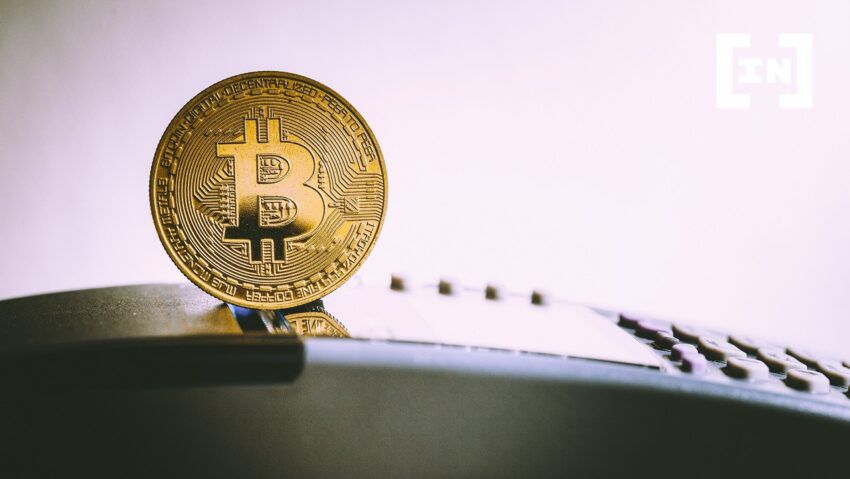Crypto payment systems: Despite the looming fears of an upcoming recession, the global financial services industry continues to evolve at a rapid pace, says Dmitry Ivanov, the CMO of CoinsPaid.
This is partly due to the COVID pandemic, which fueled growth in demand for digital payments and more efficient means of settling transactions.
Consequently, this demand accelerated the development and adoption of innovative financial tech solutions. Such examples include biometric verification, digital IDs, IoT-enabled transactions, e-wallets, and payment methods integrated with instant messaging apps.
But what is cryptocurrency’s role in this evolving payment system?
Wall Street Is Eyeing Crypto
Until the last few years, it was common for financial industry players to loudly criticize cryptocurrencies. They were often associated with illegal transactions, Ponzi schemes, and historical market bubbles. However, as digital assets have matured, many have begun to see their potential.
JPMorgan serves as an excellent example here. JPM CEO Jamie Dimon called Bitcoin “a fraud” back in 2017. But the investment banking giant now features a dedicated crypto division with over 200 employees (Onyx Digital Assets). And it seeks to tokenize equities and serve as a DeFi bridge.
And JPM is not the only financial giant eyeing crypto. Bank of America, Goldman Sachs, BlackRock, and many others have already introduced it, or are currently developing their digital asset-based offerings.
Crypto Payment Systems: Adoption
Outside Wall Street, businesses are increasingly adopting digital assets for payments. Recently, Deloitte published the results of its Merchant Adoption of Digital Currency Payments survey.
2,000 senior executives at retail companies in the US last December were polled. The study’s findings show that 85% of the respondents gave a high or very high priority to enabling cryptocurrency payments. At the same time, nearly 75% reported plans to accept stablecoins or other digital assets in the next 24 months.
Furthermore, major brands, such as Microsoft, Gucci, AT&T, Starbucks, KFC, and Burger King, are all accepting cryptocurrency payments for their products and services, with this list growing every day.
Payment giants are also increasingly leveraging crypto to attract new customers and fulfill changing consumer demands.
PayPal launched a service in October 2020 to allow US users to buy, sell, and hold coins. However, Visa and MasterCard seek to directly integrate cryptocurrency payments directly into their systems. As a result, more merchants could start accepting digital assets while making it easier for consumers to use them to settle everyday transactions.
As consumers wait for that to happen, crypto-backed debit card usage has been on the rise. Visa reported $2.5 billion of digital asset turnover for Q1 2022. Accepted by millions of merchants, cryptocurrency cards work like conventional payment cards. The main difference between the two is that holders spend digital assets with the prior, which are automatically converted to fiat currencies at the time of the transaction.
An Alternative to Conventional Payment Methods
In addition to merchants, luxury brands, financial service companies, and Wall Street giants, the demand for crypto transactions is also growing among consumers. In fact, according to Deloitte, 96% of the surveyed businesses’ customers indicated either significant (64%) or moderate (32%) interest in utilizing cryptocurrencies for payments.
And this shouldn’t come as a surprise.
Unlike bank transfers and credit card payments, digital asset transactions do not need any intermediaries to arrive securely at the recipient’s wallet. For that reason, they present a cost-efficient alternative for consumers to settle their everyday payments with near-instant transfers.
Moreover, consumers could leverage stablecoins for their payments to eliminate risks associated with the increased volatility of cryptocurrencies. At the same time, businesses can use crypto processing services that automatically convert customers’ non-stable digital assets into fiat currency to avoid the impacts of price fluctuations.
Crypto Payment Systems: The Transition
While prices are significantly down from last November’s high, crypto adoption is looking better than ever. Financial companies, retailers, and large brands are rushing to fulfill the growing consumer demands for digital asset payments.
Of course, the transition to crypto would also be beneficial for individuals. On the one hand, investors could use their holdings to cover expenses without converting their digital assets to fiat currencies. At the same time, cryptocurrency will simplify everyday payments for consumers. They offer lower fees, faster settlement times, and no need to rely on the services of financial intermediaries.
However, I believe the industry needs more regulatory clarity and a positive governmental stance toward the industry. It would accelerate transition to crypto transactions in the evolving payments landscape.

Crypto Payment Systems: Regulation
Despite the positive trends we have explored in this article, digital assets are unregulated or semi-regulated in many jurisdictions. And, due to the lack of clarity, enterprises remain hesitant to adopt crypto payments.
On the other hand, a crypto-friendly regulatory framework like the UAE’s can foster growth and adoption. After the Ruler of Dubai issued the emirate’s digital asset law in February 2022, many blockchain firms set up offices in the city to enter the local market. Consequently, business crypto adoption has been rising in the UAE, with luxury real estate developer Damac, the Day to Day Hypermarket, and the Emirates airline announcing plans to accept digital asset payments.
That said, proposed bills like the Responsible Financial Innovation Act (RFIA) in the US or the EU’s Markets in Crypto-Assets (MiCA) could help create frameworks around digital assets that could encourage their adoption for payments.
About the author

Dmitry Ivanov is the CMO of the crypto payment ecosystem CoinsPaid, an ecosystem of cryptocurrency products that sets the goal of satisfying the world’s everyday needs by leveraging blockchain technology and crypto payments. Dmitry is an expert in crypto payments and crypto adoption with extensive experience in business development and marketing.
Got something to say about crypto payment systems or anything else? Write to us or join the discussion in our Telegram channel. You can also catch us on Tik Tok, Facebook, or Twitter.
Disclaimer
All the information contained on our website is published in good faith and for general information purposes only. Any action the reader takes upon the information found on our website is strictly at their own risk.


